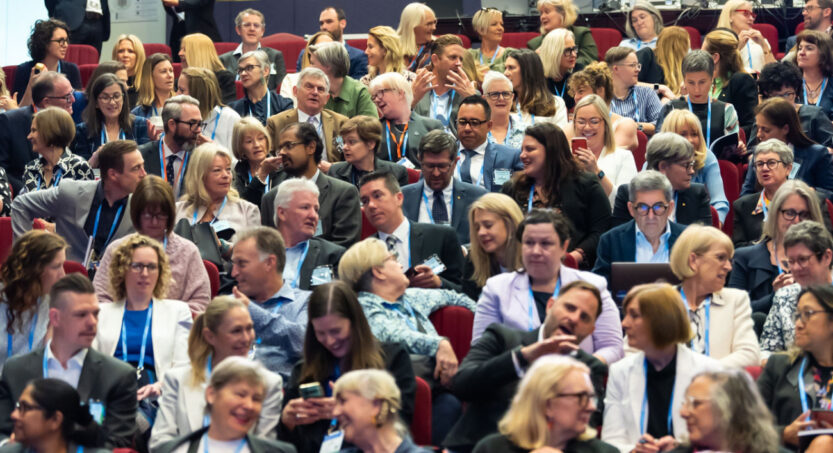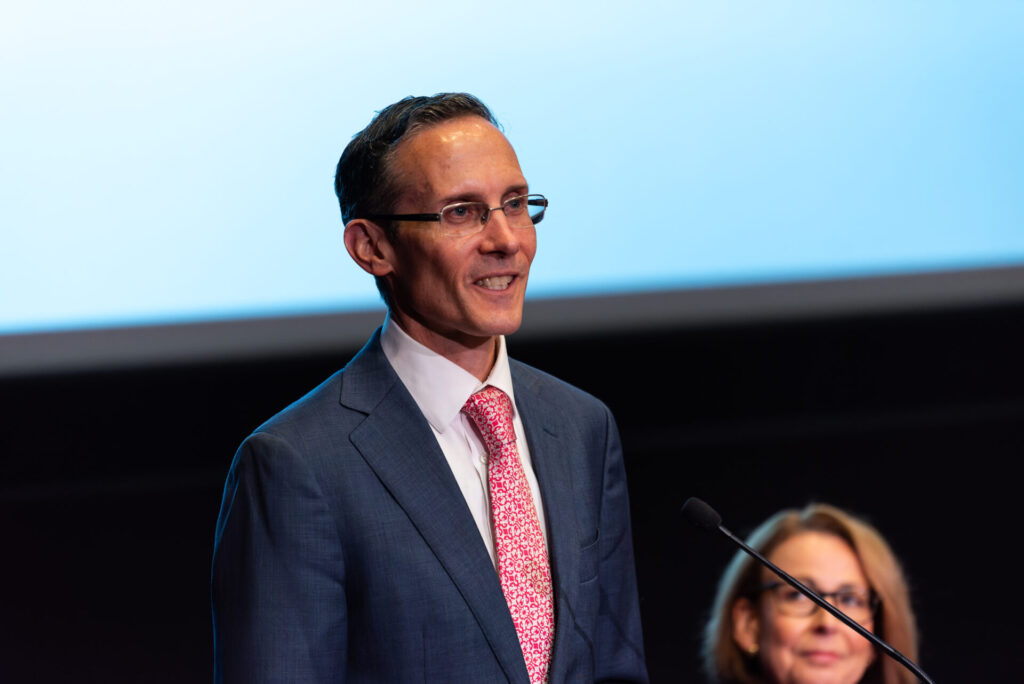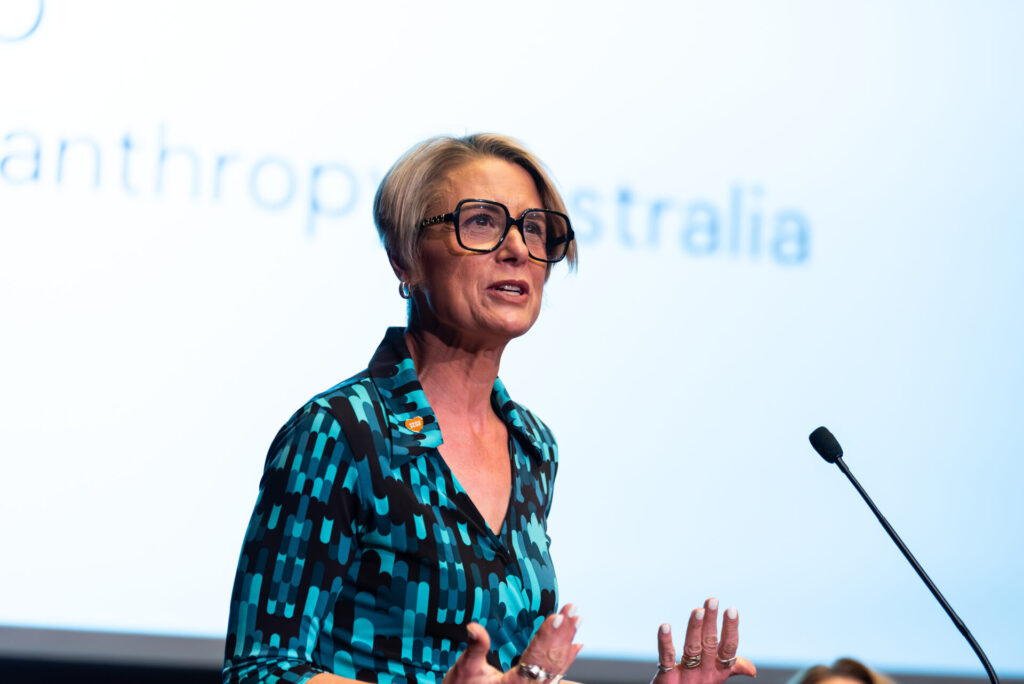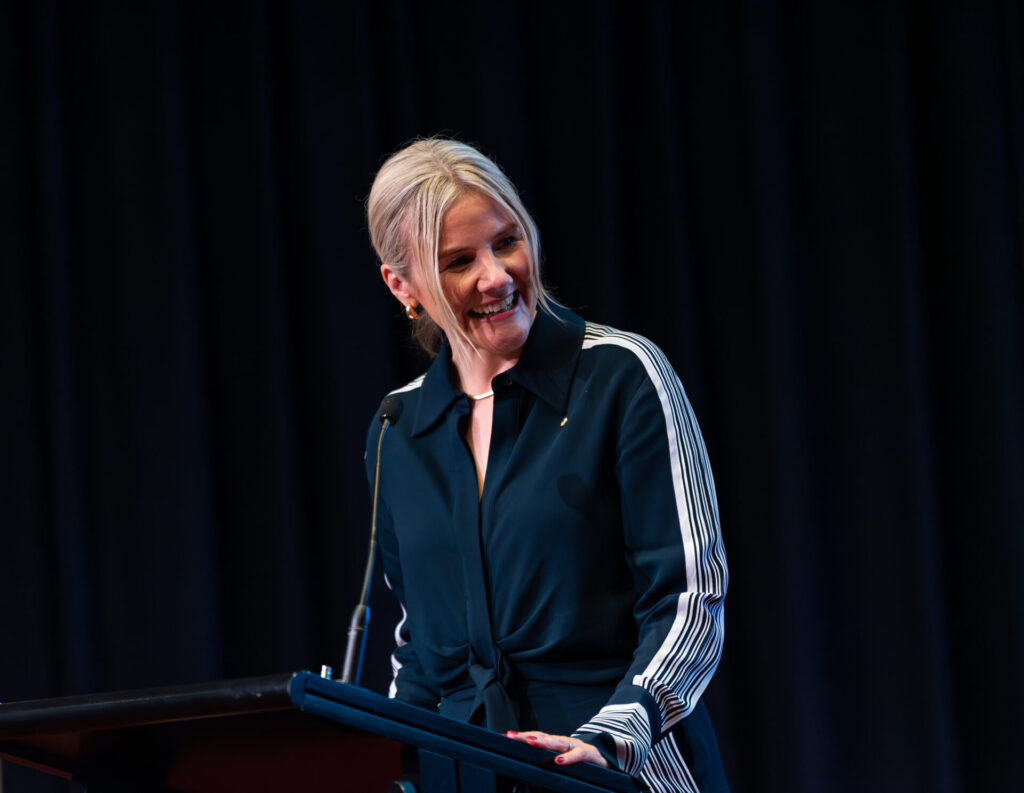Philanthropy Meets Parliament Canberra Summit: ‘Philanthropy is on the move’

The room buzzed with positive energy at our Philanthropy Meets Parliament event in the capital this week, themed ‘Philanthropy and Government Working Together to Double Giving’. Philanthropy Australia CEO Jack Heath highlighted the strong sense of shared purpose with government since it announced it would collaborate with philanthropy in 2022 to double giving by 2030. “There has never been a more important time for the sector,” he said. “Philanthropy is on the move.”
In was our first parliamentary summit since prior to the pandemic, so an action-packed agenda featured sessions on reform proposals, an update from the Productivity Commission about the Inquiry on Philanthropy, views from across the political spectrum on double giving, a preview of the proposed national giving campaign, case studies of how philanthropy is working with government to achieve impact and a thoughtful reflection on First Nations philanthropy.
Ministers the Hon Dr Andrew Leigh MP and the Hon Amanda Rishworth MP, along with other key sector speakers, addressed 280 charity and philanthropy leaders throughout the day in individual presentations and panel discussions.
‘Consider my office your concierge service to the Australian Government’
The event was emceed by journalist and television presenter Virginia Haussegger AM and kicked off by Philanthropy Australia Board Co-Chair Lisa George, before Assistant Minister for Competition, Charities and Treasury Dr Andrew Leigh spoke.
Dr Leigh said that there were three challenges the government is working on: to reconnect communities, recovery from COVID and to rebuild the charities and philanthropic sector after the last federal government. He said he was “all ears” to ways of working together and that the sector could treat his office as a “concierge service” to government.
He highlighted areas in which government and philanthropy were already working together, such as the Investment Dialogue for Australia’s Children (IDAC). “In these communities, we’re looking at scaling up place‑based interventions that have been developed by locals. We’re aiming not to do it just as government, nor to have it happen just as a community sector initiative – but to see the two sectors partnering together. This is a unique opportunity to get the very best from both sides…” he said.
“We’re keen to work with philanthropists, not because we want an excuse to step back. But because we know these challenges are massive,” he said. His full speech is now online.

‘We’ve got to focus on doubling impact too’
Former NSW Labor premier the Hon Kristina Keneally commended the double giving agenda but said the sector must also consider the outcomes of that money. “Doubling donations focuses on the inputs. We need to put just as much focus on the outputs – doubling impact, at least” she said. “We should not talk about one without the other.”
Ms Keneally outlined the challenges facing the sector and said she looked forward to the recommendations from the Productivity Commission. “Let’s be clear. Australia is not going to double philanthropic giving one cake stall at a time,” she said. “Doubling charitable donations will only happen when we make it easier for high-net-worth individuals and corporations to give their money away.”
She said she understood the pride the Labor party had in the superannuation system and its “hypervigilance” about proposals from political opponents for it to be used for other purposes. If the Productivity Commission recommended reform in this area, she said, the philanthropic sector needs to understand this context and work “patiently and carefully” with government.

Reform proposals
Philanthropy Australia put forward a number of proposed reforms in its submission to the Productivity Commission, three of which we delved into at the Canberra Summit. Social Services Minister Amanda Rishworth appeared via link from Adelaide to discuss IDAC, saying that government and philanthropy have a “shared vision” that working in early childhood interventions is a priority. “We know that if we can get in early, we can really make a difference.” She highlighted that it was not just a partnership between government and philanthropy but also the communities at the heart of IDAC.
Matthew Cox, Executive Director of the Bryan Foundation, who has been working with government on IDAC, echoed Minister Rishworth’s sentiments on communities and said self-determination of local people in the place-based model was key. He said that the more communities were involved in decision-making, the better the outcomes. He outlined some of the improvements in childhood development indicators already being achieved in the project.
A report commissioned by Philanthropy Australia about how unlocking the potential of superannuation bequests could generate tens of billions of dollars for good causes was launched at the Summit by its authors from the consultancy, Impact Economics and Policy. Dr Angela Jackson, Lead Economist and Dr Emily Millane, Lead, Economic Security and Governance, called the proposed reform a “really simple idea” and that it should be administratively easy for people to leave a legacy. There is currently around $3.5 trillion held in superannuation in Australia but people are dying with up to only 10% of it being used. The report estimates through modelling that between $64.6 and $260.3 billion could be generated through the reform for good causes by 2060. The full report is now available on Philanthropy Australia’s website.
The incoming CEO of the Australian Community Foundations, Ian Bird, who had arrived from Canada only days before the Summit, outlined his roadmap to strengthen and grow the placed-based giving model in Australia. Ian is known for his transformational work as the former CEO of the Community Foundations of Canada and Chair of the Global Fund for Community Foundations. He spoke about how the network here can “leapfrog” the achievements of the Canadian model with what he learned there – “what we got right and what we missed”.
“Building the system comes from bottom-up creativity with local leadership working with the wider philanthropic community.” He said that COVID showed that resources can be mobilized quickly to indigenous and local communities and real transformation was possible within the next 10 years.
“My invitation is to come on in and participate and we’ll find what works for you. Let’s make this a system-building endeavor.” Read Philanthropy Weekly next week for more insights in a full interview with Ian.
Philanthropy and government: collaboration for impact case studies
A number of successful stories of how philanthropy is collaborating with government to further shared objectives were brought to life at the Summit. These included Bernadette Black AM’s collaboration to overhaul Centrelink as a more positive and easy system for young parents to navigate. She relayed how it was based on her own personal experience. Danielle Wood, CEO of the Grattan Institute, reviewed some of the outstanding outcomes the independent public policy think tank has achieved based on an initial $15million investment from philanthropy and government – before her imminent departure to become the first woman to head the Productivity Commission. The Summit also heard from Dr Georgie McClean, Executive Director, Development and Partnerships at Creative Australia, on where the organisation is headed under its new identity and the importance of philanthropy to arts sustainability. Read Philanthropy Weekly next week for more on these case studies of collaboration with government.

Jack Heath wrapped up the day by thanking all involved and acknowledging Philanthropy Australia’s strategic partners and champions. He called on the sector to be ready to respond effectively when the Productivity Commission hands down its draft findings at the end of November. He reiterated the sense of alignment between government and philanthropy on working together to change lives and the importance of sharing our stories to keep building a culture of giving in Australia.
“It’s clear we have a very big journey ahead of us in terms of our First Nations peoples, and we are so privileged to have Leah Armstrong and Adrian Appo chairing our First Nations Funders Network, which is about to have its first meeting. That’s very much about stepping up what we do in the year ahead,” he said.
“We’ve got to make sure that the ‘Nos’ don’t become ‘Nevers’.”